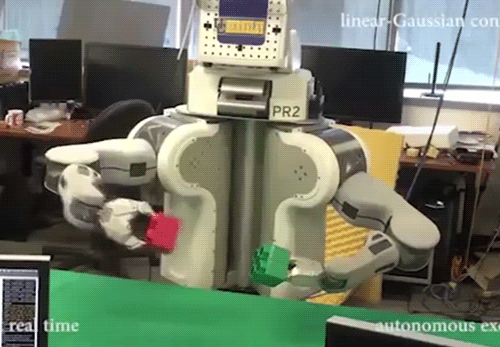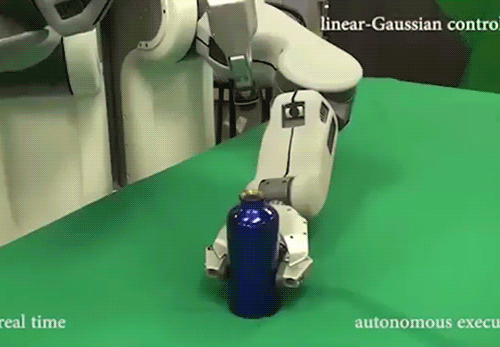ucresearch:The robot that learns from its mistakesUC Berkeley researchers have developed algorithms
ucresearch:The robot that learns from its mistakesUC Berkeley researchers have developed algorithms that enable robots to learn motor tasks through trial and error using a process that more closely approximates the way humans learn. This marks a major milestone in the field of artificial intelligence.Motor learning is much more challenging than passive recognition of images and sounds.The researchers demonstrated their technique, a type of reinforcement learning, by having a robot complete various motor tasks without pre-programmed details about its surroundings.“Most robotic applications are in controlled environments where objects are in predictable positions,” said UC Berkeley faculty member Trevor Darrell, who is one of the leads on the project. “The challenge of putting robots into real-life settings, like homes or offices, is that those environments are constantly changing. The robot must be able to perceive and adapt to its surroundings,” said Darrell.Conventional, but impractical approaches to helping a robot make its way through a 3D world include pre-programming it to handle the vast range of possible scenarios or creating simulated environments within which the robot operates.Instead, the researchers turned to a new branch of artificial intelligence known as deep learning, which is loosely inspired by the neural circuitry of the human brain when it perceives and interacts with the world.Deep learning helps the robot recognize patterns and categories among the sensory data it is receiving. Learn more about how deep learning works in the robot -- source link
Tumblr Blog : ucresearch.tumblr.com
#robots#science#technology#awesome


